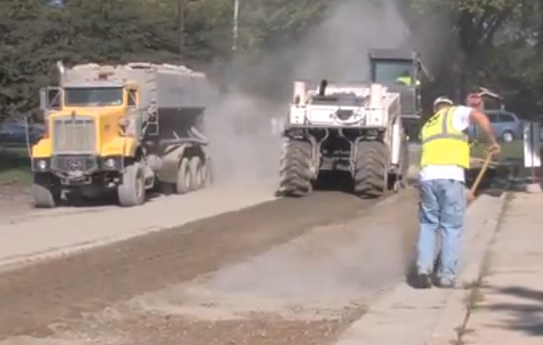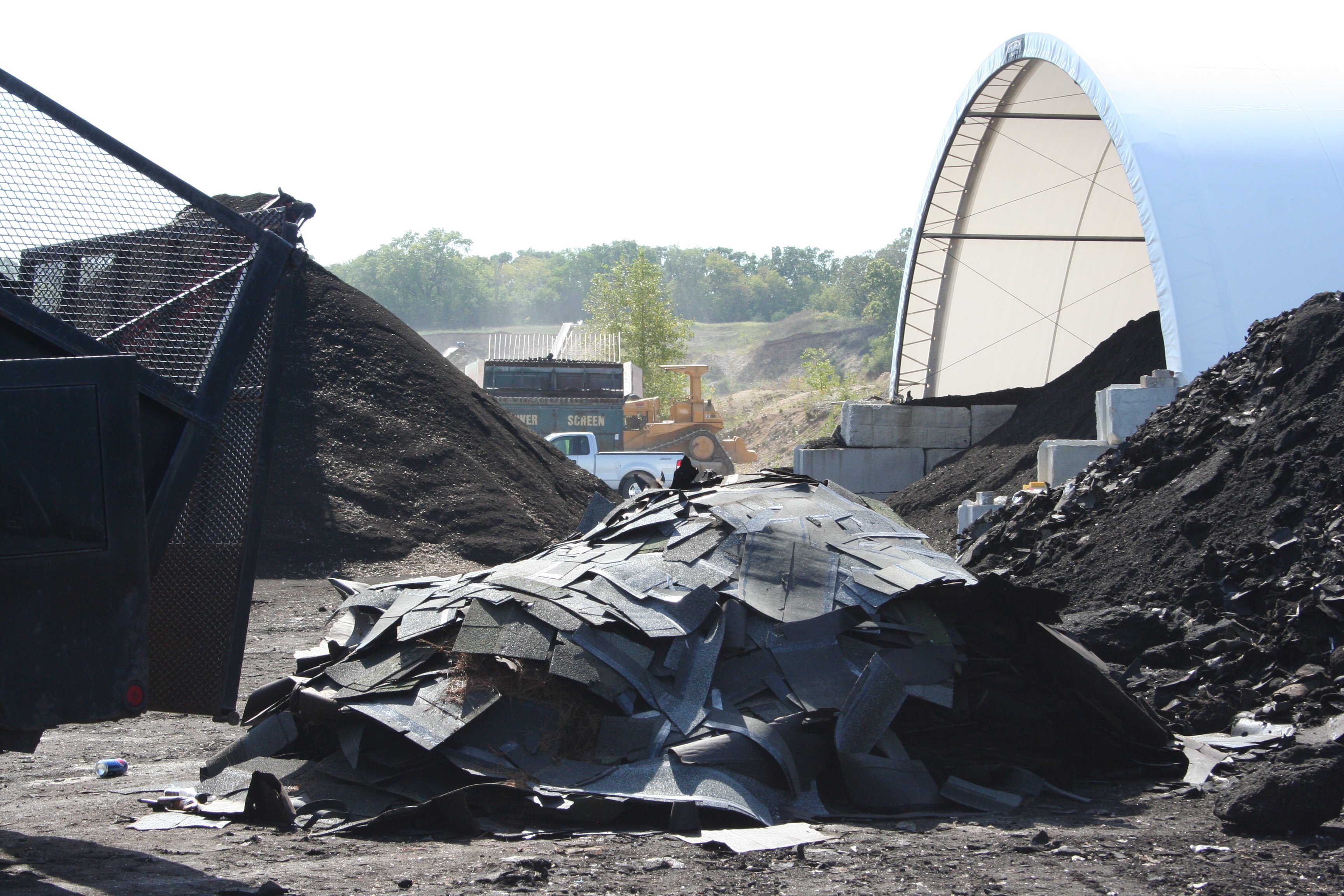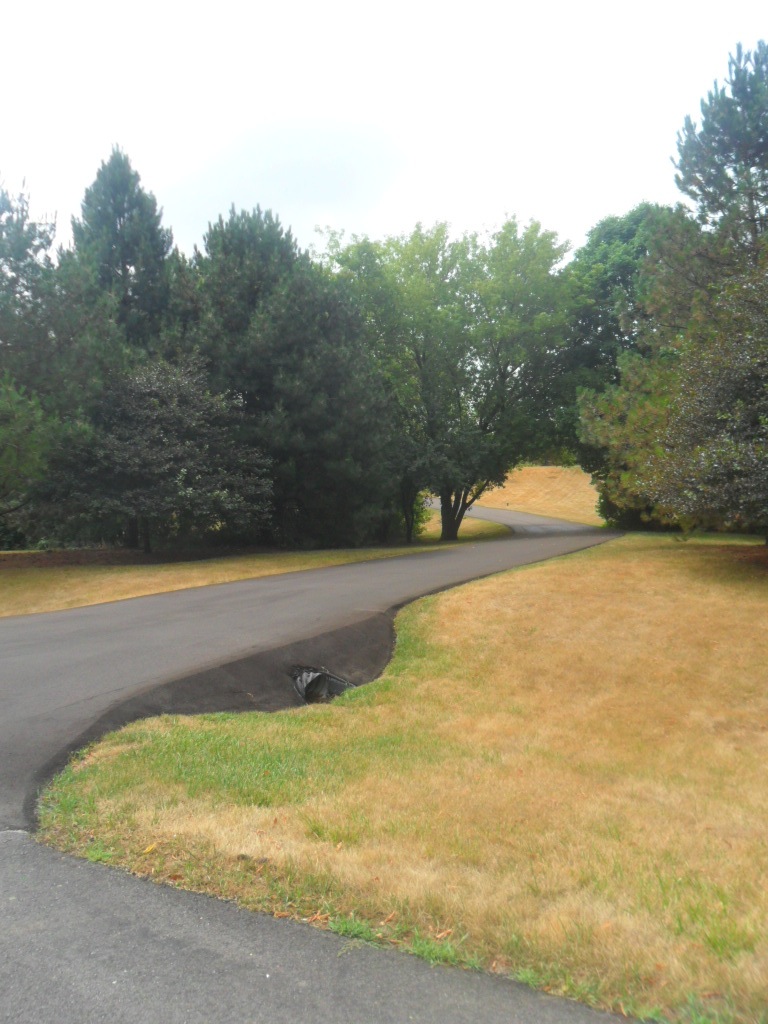The Waukesha County roads that are part of this project are about 7-8" thick. It can be costly and time-consuming to tear out an entire existing road and pave back in that thick. It was determined by Waukesha County Engineering that removal of 6” of the existing pavement and patching distressed areas would be necessary. Those areas are milled 6” deep and an asphalt mix designed for Waukesha County is paved in two layers with nuclear density testing to make sure it is the right density and performs properly over time.
To save costs over traditional paving of a first binder layer, hot-in-place recycling can be done, a sustainable and eco-friendly asphalt paving method.







